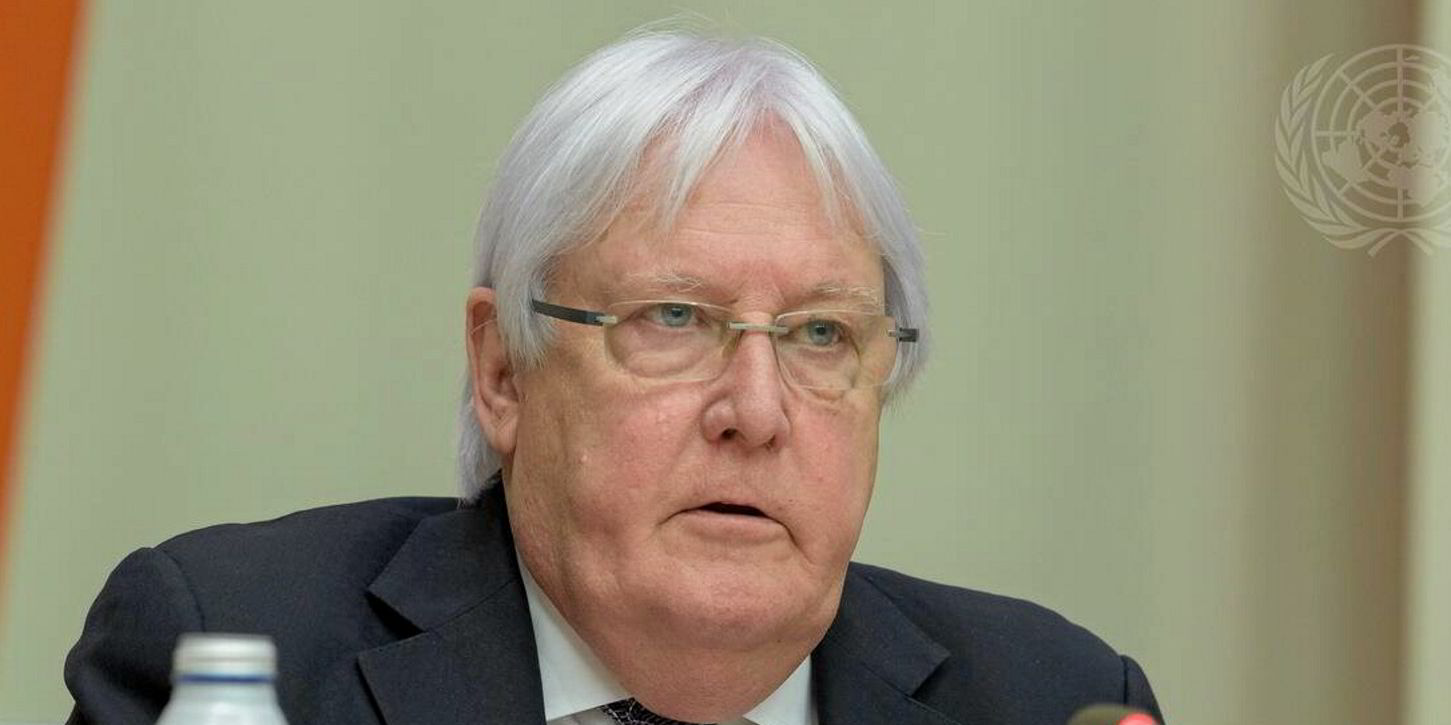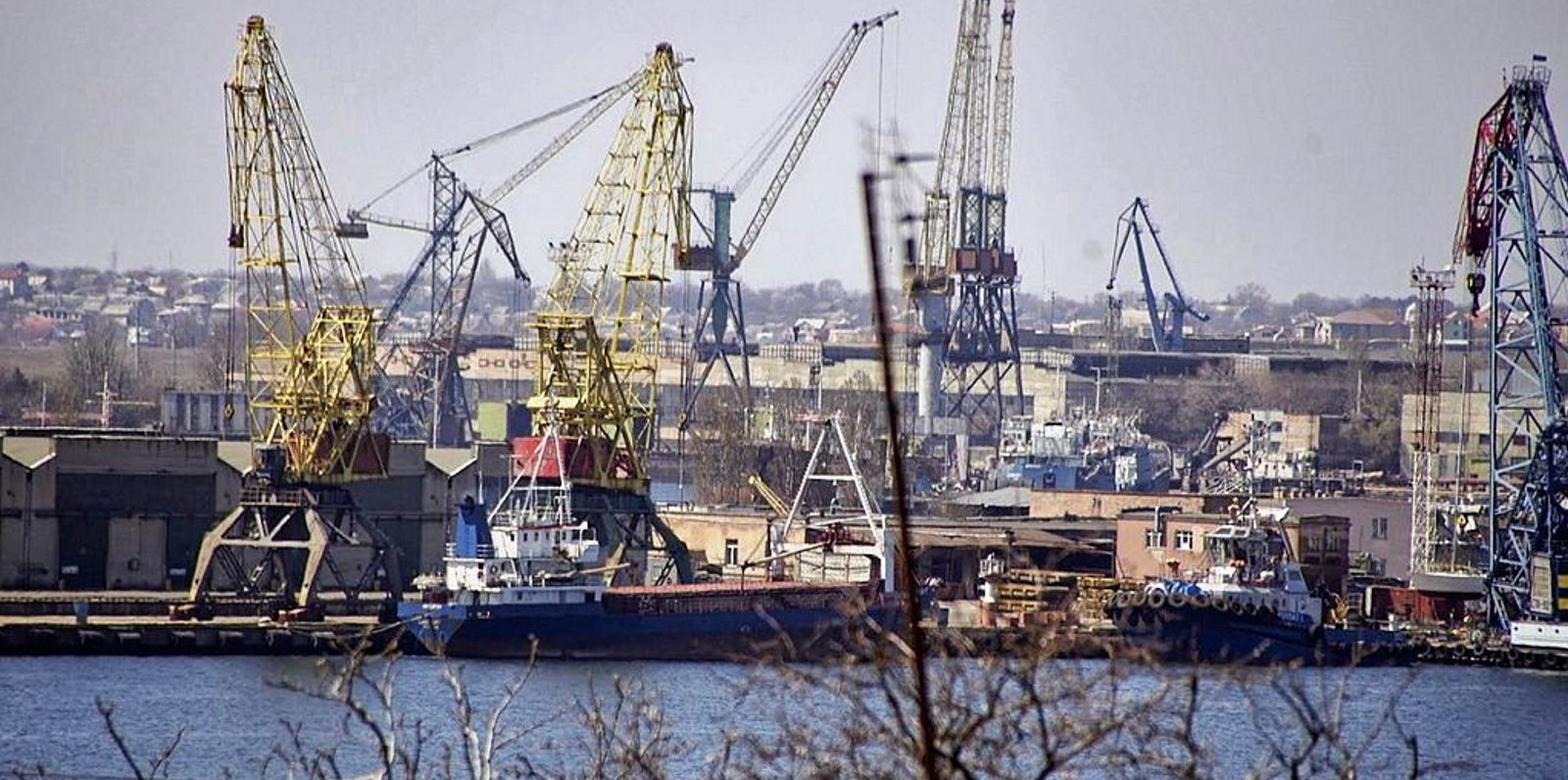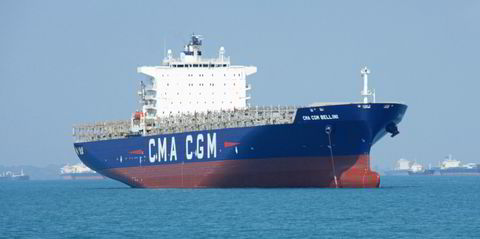Ukraine said on Friday that it is awaiting the go-ahead to resume seaborne exports from its blockaded ports, with 18 loaded vessels ready to start the United Nations-brokered operation.
The vessels include the 41,600-dwt Rojen (built 2019), managed by Navibulgar, one of eight bulkers at Chornomorsk, south-western Ukraine, from where exports will first resume under the 120-day ceasefire agreement, according to MarineTraffic data.
Ukrainian President Volodymyr Zelenskyy, who visited the port on Friday, said his country is ready to start the operation — a week after a deal was signed with Russia.
“Our side is fully prepared. We sent all the signals to our partners — the UN and Turkey — and our military guarantees the security situation,” his office quoted him as saying.
Zelenskyy said it is the first time a vessel is being loaded since the start of the war, the Associated Press reported. It quoted him as saying that the first to leave port will be vessels loaded before the outbreak of war.
The Malta-flag Rojen is estimated to arrive at Teesport in north-eastern England on 12 August, according to data from bulker tracking platform Oceanbolt. It has been at Chornomorsk since February 21, three days before the Russian invasion of Ukraine.
It shifted to a berth on Thursday and loaded with 27,500 tonnes of cargo thought to be grain, according to loading data from Oceanbolt. Ukraine’s infrastructure minister, Oleksandr Kubrakov, said 17 other vessels are loaded with grain.
The UN said it hoped the first ships could move from the port on Friday via a safe corridor through the mined Black Sea.
The UN, which is part of the Istanbul-based Joint Coordination Centre (JCC) running the operation, could not confirm which bulker would be first to leave.
“The JCC is working to establish standard operating procedures, including monitoring and inspection procedures and emergency response procedures,” a UN official said.
“The work also focuses on the routes and corridors for the inbound and outbound vessels.
“Once all of those elements are in place, then we will start seeing the first movements. The ultimate goal is to ensure the safe passage of commercial vessels.”
Navibulgar has been approached for comment.
Blockaded ports
Ships are due to leave Chornomorsk and two other blockaded ports, Odesa and Yuzhne, in the coming weeks under the plan. Ukrainian officials said on Friday that Odesa is also ready for exports.
It was not immediately clear when they would leave. UN aid chief Martin Griffiths said critical issues to ensure the safety of shipping need to be thrashed out.

Talks continued on Thursday between Ukrainian and Russian officials and the UN and Turkey, which will oversee the deal.
An insurance scheme that has been finalised to cover Ukrainian grain shipments has the support of the Lloyd’s of London market.
Lloyd’s insurer Ascot and broker Marsh are heading a dedicated facility that includes 10 other insurers. Up to $50m of cover will be provided for each ship carrying Ukrainian grain.
Under the UN-brokered scheme, ships travelling into the Ukrainian ports will be inspected and the UN will oversee the loading to ensure weapons are not smuggled for use in the war.
The deal signed off last Friday aims to ship more than 20m tonnes of stored grain to allow silos to be cleared for new harvests. Prices have soared and the UN said the grain from Ukraine is needed to alleviate global hunger.
Two Russian missile strikes over the past week on the Odesa region threw the operation into doubt, but Kyiv and Moscow said they remain committed to the deal.
Shipbroker Braemar said 26 bulkers are currently in Ukrainian ports, many without crew, who have been moved for their safety since the invasion. It said two ships are already loaded with grain at Chornomorsk, but did not identify the vessels.
Considerable premium
“As of today, the plan is for one cargo to leave Chornomorsk,” Braemar said, adding that the move is intended to show that it is safe for bulkers to operate in Ukraine.
Given their size, handysizes are likely to be the focus of the operation, owing to the shallower draft requirements in some ports, it said.
“Due to the time pressure of the situation and risk of heading to Ukraine amid plenty of safety concerns, these handies are unsurprisingly commanding a considerable premium to any period rates currently being discussed in the Atlantic elsewhere,” Braemar said in its weekly dry market report.





